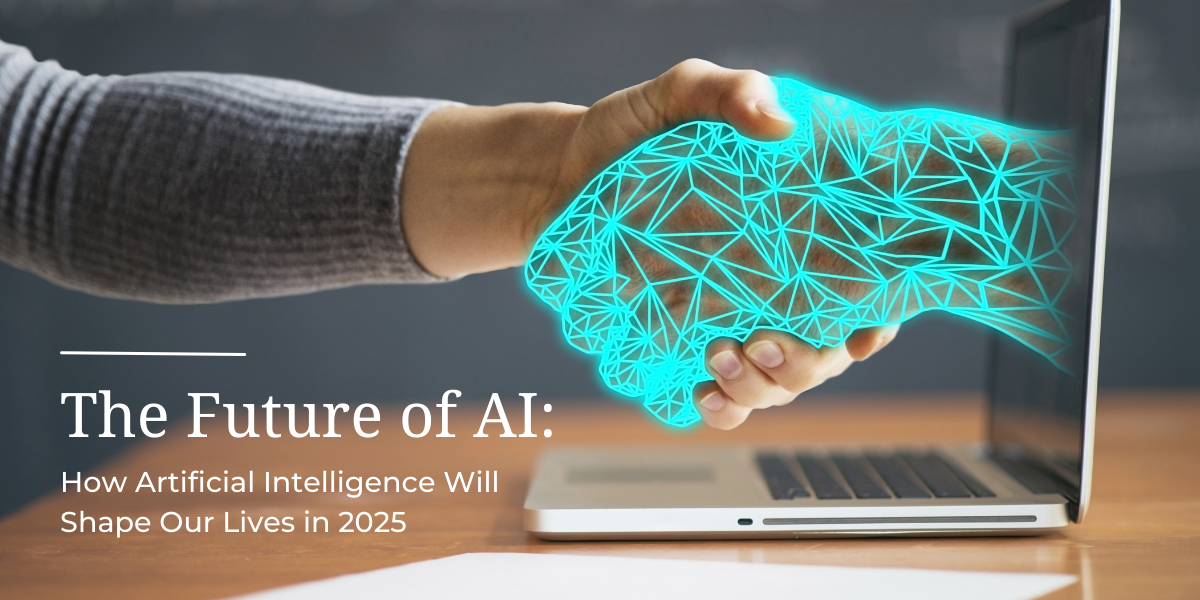Artificial Intelligence (AI) is no longer a futuristic concept—it’s the digital heartbeat of our modern world. In 2025, AI is set to evolve from a behind-the-scenes helper to a front-and-center catalyst for innovation across every aspect of life. From healthcare and urban planning to education and personal tech, AI is driving a paradigm shift we’re only beginning to understand.
Let’s take a deep dive into how AI is shaping our world, what it means for the future, and why 2025 might be the year we truly feel its full impact.
1. AI in Healthcare: A Revolution in Real-Time
Healthcare is one of the most exciting frontiers for artificial intelligence. In 2025, AI is moving far beyond administrative automation or back-end data processing—it’s transforming patient care, diagnostics, and how we think about medicine.
Personalized Medicine at Scale
Thanks to AI-powered algorithms, we’re entering an era of truly personalized healthcare. Platforms fueled by machine learning can now analyze an individual’s genetic makeup, lifestyle data, and medical history to deliver custom treatment plans. This isn’t science fiction—it’s already being piloted in advanced medical centers worldwide.
Predictive Diagnostics and Early Detection
AI’s predictive capabilities are game-changers. Imagine being alerted to a potential heart condition weeks before symptoms appear, or identifying the early stages of cancer through a smart wearable. With real-time health monitoring and predictive diagnostics, chronic diseases can be managed—or even prevented—before they become life-threatening.
Remote Robotic Surgery and Global Expertise
In 2025, remote robotic surgeries are not only viable—they’re more accessible. Surgeons on one continent can operate on patients in another, thanks to AI-powered robotic arms and ultra-low latency 5G. As the cost of this tech drops, it will redefine global healthcare access, making high-quality care available in even the most remote regions.
2. Smart Cities: AI-Driven Urban Living
Urbanization continues to accelerate, and AI is the key to making our cities more livable, efficient, and sustainable.
Intelligent Infrastructure and Traffic Flow
AI-powered traffic management systems can already adapt in real-time to congestion, reroute vehicles, and sync traffic lights to reduce travel time. By 2025, many cities will rely on autonomous systems to keep traffic flowing, reduce accidents, and cut emissions.
Think about smart intersections that “know” when to turn red based on live traffic data—or roads that communicate with self-driving cars to prevent collisions. These aren’t just ideas; they’re being rolled out in forward-thinking cities globally.
Public Safety and Emergency Response
AI-enhanced surveillance (with appropriate privacy regulations) can identify unusual behavior, flag potential threats, and assist in emergency response. Drones and automated patrols are supplementing human security forces, ensuring faster, more efficient public safety operations.
3. AI and the Future of Work: Evolution, Not Elimination
AI isn’t here to take our jobs—it’s here to transform them. In 2025, automation and intelligent systems will handle repetitive tasks, allowing humans to focus on creativity, strategy, and problem-solving.
Human-AI Collaboration in the Workplace
AI will become an indispensable teammate. From marketing to logistics, tools like generative AI, natural language processing, and predictive analytics are empowering professionals to work smarter—not harder. Imagine AI summarizing lengthy reports, drafting initial content, or spotting trends in real-time business data. That’s the new normal.
The Rise of New Roles
With the rise of AI, demand for roles like AI ethics consultants, data science specialists, prompt engineers, and machine learning developers is exploding. Learning platforms are adapting fast, with micro-courses and certifications that let professionals upskill in months, not years.
4. Education Gets a High-Tech Makeover
The way we learn is undergoing a digital evolution—and AI is the driving force behind this transformation.
Personalized Learning Journeys
One-size-fits-all education is becoming obsolete. AI-powered learning platforms are creating personalized curricula tailored to each student’s pace, interests, and strengths. These systems provide real-time feedback, helping students master topics faster and more efficiently.
Whether it’s helping a student struggling with algebra or offering advanced material to a curious learner, AI tutors are reshaping what it means to be in a classroom.
Virtual Classrooms and Global Access
With immersive technologies like AR/VR and AI-backed lesson planning, students from any corner of the globe can now access Ivy League–level education. By 2025, virtual campuses will rival traditional classrooms in engagement and effectiveness, especially in underserved regions.
5. Everyday Life: AI at Your Fingertips
AI isn’t just powering industries—it’s becoming a personal assistant, a home manager, and even an entertainer.
Smart Homes and Lifestyle Automation
From thermostats that learn your comfort preferences to refrigerators that track your groceries, AI is making homes smarter and more intuitive. Virtual assistants like Google Assistant and Alexa are evolving into true digital concierges, capable of managing calendars, ordering supplies, and even suggesting recipes based on your diet goals.
AI in Retail and Entertainment
Shopping in 2025 will be hyper-personalized. AI knows your style, size, and preferences, making product recommendations feel like they came from your best friend. Entertainment, too, is shifting. AI-generated music, personalized film recommendations, and interactive storytelling are creating experiences we’ve never seen before.
6. Ethical AI: Navigating the Gray Areas
As AI becomes more ingrained in society, concerns around data privacy, algorithmic bias, and ethical use grow louder—and rightfully so.
Transparency and Accountability
AI needs to be transparent and explainable. In 2025, expect tighter regulations that require companies to disclose how AI systems make decisions. Governments and organizations are already working on frameworks to ensure fairness, eliminate bias, and give users more control over their data.
Data Privacy and Consent
Consumers are becoming more privacy-conscious, and AI providers must respect that. Decentralized data storage, federated learning, and blockchain are being explored as privacy-first solutions. AI’s future depends on building trust—and that means putting the user first.
Conclusion: 2025 and the New AI Reality
As we step into 2025, AI is no longer a distant innovation—it’s an integral part of our daily existence. It’s helping us live longer, learn better, work smarter, and connect more deeply with the world around us.
Yes, challenges remain. But with thoughtful regulation, continuous innovation, and human-centered design, AI has the power to enhance—not replace—our humanity.
So whether you’re an entrepreneur, a student, a parent, or a tech enthusiast, one thing’s for certain: AI is here, and the future is brighter because of it.

